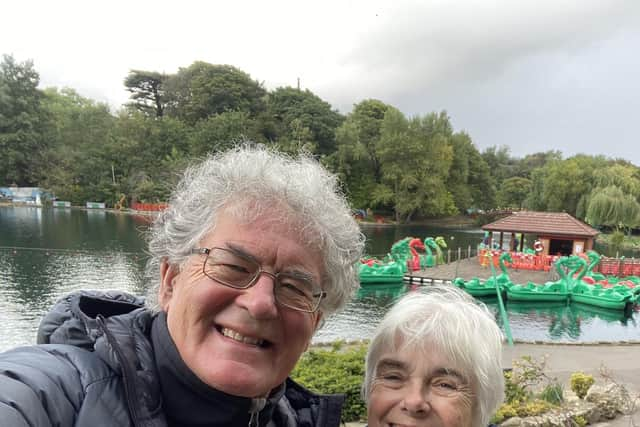Study involving Leeds researchers says chemotherapy before surgery cuts risk of colon cancer return
and live on Freeview channel 276
The FOxTROT trial was led from the University of Leeds and the University of Birmingham, and concluded that giving six weeks of chemotherapy to colon cancer patients before surgery, instead of after, cuts the risk of the illness returning within two years by 28 per cent.
1,053 patients at 85 hospitals were involved, and the Cancer Research UK-funded trial consisted of dividing colon cancer patients into two groups. The first received six weeks of chemotherapy followed by surgery, and then a further 18 weeks of chemotherapy. The second group underwent standard treatment for colon cancer, consisting of surgery and then 24 weeks of chemotherapy. Follow-up assessments showed patients in group one were significantly less likely to have their cancer return.
Advertisement
Hide AdAdvertisement
Hide AdProfessor of gastrointestinal cancer research at the University of Leeds, Professor Matthew Seymour, said: “Timing is everything when it comes to treating colon cancer. The simple act of bringing forward chemotherapy, giving it before instead of after surgery, delivers some remarkable results.


“Delivering chemotherapy before surgery could prevent recurrences of cancer without the need for expensive new drugs or technologies. It was especially encouraging to find that patients who had chemotherapy before their surgery suffered fewer surgical complications. Scaling up this treatment worldwide, including in low and middle income countries, could transform cancer care and save many thousands of lives.”
Among those involved in the trial was Geoff Hoggard of Leeds, who has said he is proud the city played such a major role in the trial. He said: “I’d noticed blood in my poo a few times and initially I had felt quite embarrassed about it. But I ended up being diagnosed with colon cancer, which was a massive wake-up call. Doctors at the Leeds Cancer Centre saw the cancer very clearly with a colonoscopy and I was told that it needed urgent treatment, which came as a huge shock.
“I was willing to take any opportunity to get the most effective treatment. The FOxTROT trial felt like the best way to do that, and I was happy to sign up when my consultant offered to put me on it. I got six weeks of chemotherapy before surgery and 18 weeks after, which was hard going. Brain fog and severe tiredness took its toll on me. I kept going, thanks to the support of friends, family and my local church, who were a constant source of strength.
Advertisement
Hide AdAdvertisement
Hide Ad"Eventually, it was all worth it. I’ve had no complications since the surgery, and there were no signs of cancer in the months and years after. Six years on, I’m back living life to the full. I have no regrets at all about taking part in the FOxTROT trial and proud that Leeds played such a major part of it. I hope that many others will live longer, free from cancer, because of the developing science that underpins this new approach, and which worked so well in my case.”


Further clinical trials, named FOXTROT-2 and FOXTROT-3, are now being conducted to investigate whether older patients will benefit from chemotherapy before surgery and if adding in more chemotherapy drugs ahead of surgery further reduces the chances of the cancer returning. If successful, Cancer Research UK has said patients could receive more tailored cancer treatments.
Associate professor at the Birmingham Clinical Trials Unit at the University of Birmingham, Dr Laura Magill, said: “Up to one in three colon cancer patients can see their cancer come back after surgery. That figure is far too high and we need new treatment strategies to stop colon cancer coming back.
“The standard approach has been to give chemotherapy after surgery to eradicate any cancer cells that might have spread before surgery. But our research shows that giving some of that chemotherapy before surgery increases the chances that all cancer cells will be killed.”
